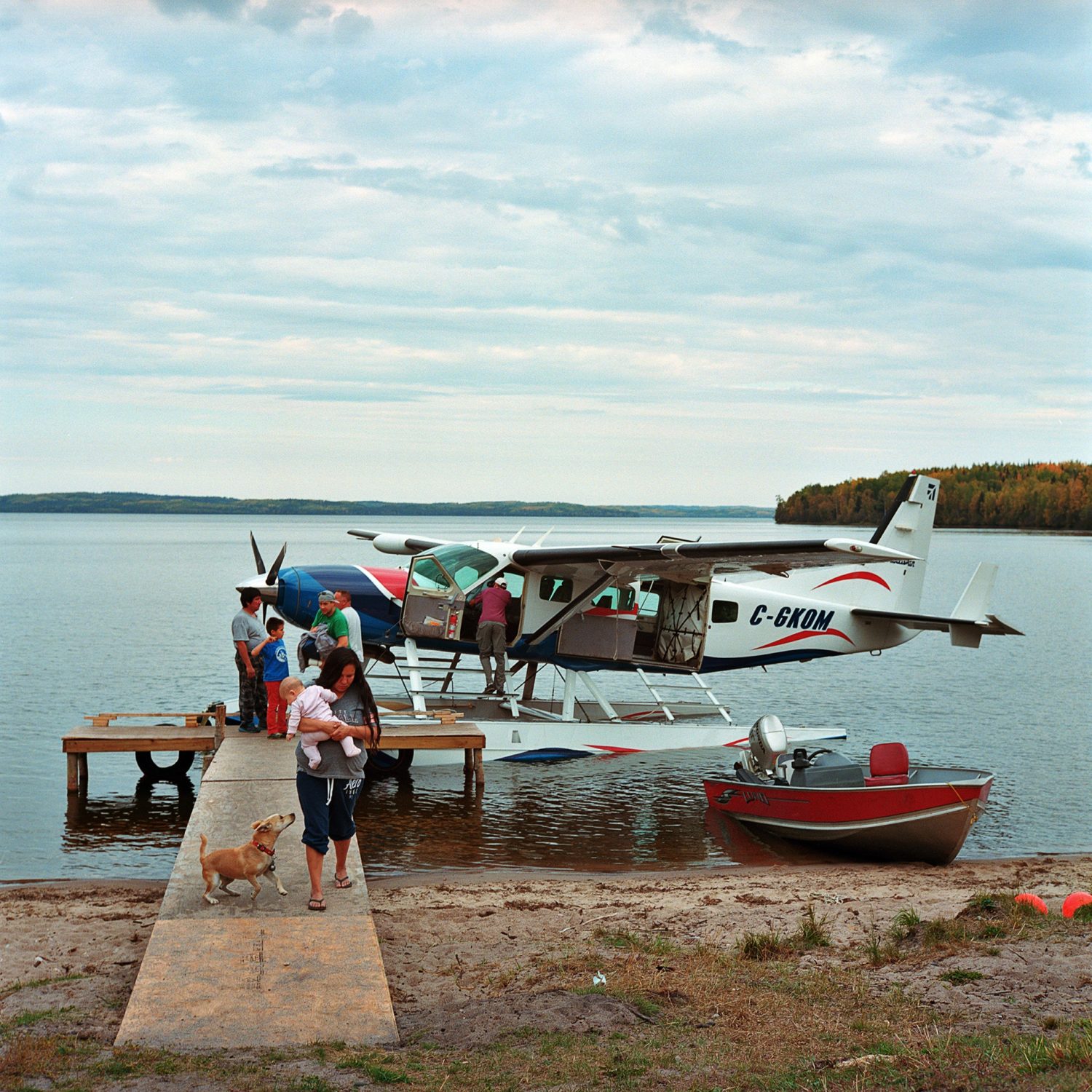
5 things to know about Winnipeg’s big sewage problem
115 billion litres, 70 years to fix, $5.5 billion in lawsuits
A photo essay published by The Narwhal was presented with an award from the Canadian Association of Journalists on Saturday night at a gala in Winnipeg.
The award went to Aaron Vincent Elkaim for outstanding photojournalism for a photo essay that explores the Fort McKay First Nation’s complicated relationship with the oilsands.
“Surrounded on three sides by oilsands operations, the Fort McKay First Nation has benefited tremendously from industrial development — while also experiencing firsthand its environmental consequences,” Elkaim wrote.
“While the nation has historically supported nearby operations, when Prosper Petroleum proposed a 10,000 barrel per day oilsands project near Moose Lake, an area of sacred cultural value for the people of Fort McKay, the community reached a tipping point.”
In December 2018 the Fort McKay First Nation launched a lawsuit against the Alberta government after failed efforts to prevent a new oilsands development from going forward near Moose Lake.
The lawsuit claims that significant forestry, mining and oil and gas development prevent the nation from practicing treaty rights — to hunt, fish, trap and gather medicinal plants — anywhere but Moose Lake.

Maureen Grandjambe arrives with her family to the Moose Lake Reserve on a plane chartered by Suncor Energy, who provide free flights to memebers of the community in 2013. Sixty kilometres from Fort McKay, Moose Lake is the only pristine land remaining for the community to practice their traditional culture. Photo: Aaron Vincent Elkaim
In his photo essay Elkaim reported that “since November 2011, water has been delivered to each and every home in Fort McKay after the community realized they had been drinking water with high levels of the carcinogenic chemicals, trihalomethanes and haloacetic acids. Many people complain of rashes and sores from showering in the water.”

Crystal and Oren Boucher celebrate their marriage in the Fort McKay First Nation Band Hall. Oren, a long-time employee of Suncor had terminal colon cancer at the time of his wedding, he passed away one year later on the night of his grandfather and oldest community elder, James Grandjambe’s 92nd birthday party. Cancer, miscarriage and respiratory illnesses are frequently reported in Fort McKay. Many believe the industry is to blame. Photo: Aaron Vincent Elkaim / The Narwhal
Elkaim’s work has been published in The New Yorker, The New York Times, National Geographic, TIME, Telegraph Magazine, The Canadian Press and The Globe and Mail.
Pat Kane’s photo essay for The Narwhal on Indigenous-led conservation in the Northwest Territories was also a finalist for the award. Other finalists included Jonathan Hayward of The Canadian Press and Larry Wong of the Postmedia Network.
Launched less than a year ago, The Narwhal is ad-free, non-profit and has just four full-time employees. More than 1,200 people have donated to support The Narwhal’s journalism in its first year.
The Narwhal was also a finalist in the labour reporting category for Sharon J. Riley’s feature showcasing coal miners in Wabamun, Alta., as they grapple with the imminent reality of being out of work due to the province’s phase-out of coal-fired electricity.
The award in the labour reporting category went to CBC News Montreal.
In November 2018, The Narwhal won four Canadian Online Publishing Awards. In April, The Narwhal was named as the sole Canadian member of the Institute for Nonprofit News. And last week, The Narwhal earned four nominations from the National Magazine Awards and three nominations from the Digital Publishing Awards.
The Narwhal’s 700+ monthly members are the lifeblood of our newsroom, providing reliable support for our reporting on the natural world that can’t be found anywhere else. Please consider becoming a monthly member of The Narwhal today.
Get the inside scoop on The Narwhal’s environment and climate reporting by signing up for our free newsletter. On a warm September evening nearly 15...
Continue reading
115 billion litres, 70 years to fix, $5.5 billion in lawsuits

Climate change, geopolitics and business opportunities power a blue economy

10 billion litres of sewage are dumped into Winnipeg’s lakes and rivers each year. Some...
